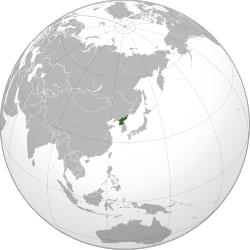The Tinderbox Of North East Asia – Analysis
By Observer Research Foundation
By P K Ghosh
As thousands of neatly lined North Korean civilians and soldiers cheered with somber faces shivering during the endless speeches on their country’s technological prowess at Pyongyang, the world at large was deeply unhappy. Coming eight months after the unsuccessful launch of a similar rocket last April the speeches and celebrations were a result of the successful launch of a three-stage rocket Unha 3 – having admirably fixed the glitches within this short period of time. Kim Jung-un, the new 29-year-old North Korean leader, who was shown beaming on TV as he watched the test was however sure of one aspect – the event had undoubtedly boosted his image and authority dramatically within the country after the earlier failure in April.
While this was a call for celebration within North Korea, the test was in clear violation of Security Council Resolution 1874 and in the international scenario it pleased no one including their closest friend China.

North Korea on Dec. 12 successfully test-fired Unha 3 ostensibly to put a small 90 kg earth surveillance satellite the Kwangmyongsong-3, (or Shining Star-3) into orbit, thus making it the tenth country in the world to be able to do so. While this was the stated purpose the real reason obviously was to test-fire its three stage ballistic missile which gave it an intercontinental ballistic missile capable of reaching US.
Naturally an anxious US currently preoccupied with a domestic budget battle and internationally with Syria and Egypt called it “a highly provocative act” that threatened regional stability, adding that “This action is yet another example of North Korea’s pattern of irresponsible behaviour.” However, China was a trifle more circumspect and the official response was muted.
Chinese Foreign Ministry spokesman Hong Lei expressed regret at North Korea’s action and in anticipation of a fresh round of sanctions against North Korea stated that the UN Security Council’s response should be “prudent and moderate and conducive to maintaining stability and avoiding escalation of the situation”. A corresponding commentary in the People’s Daily appealed for calm.
The response betrayed the Chinese predicament of wanting a status quo in the tension filled Korean peninsula given that it dreads a massive influx of hungry refugees into its territories in case of a breakdown of the current regime, and hence has effectively propped up a crumbling buffer state with food, economic and weapons “aid”. India also joined in the global chorus of condemning the event by stating “India expresses its concern at the launch of a rocket… in violation of United Nations Security Council Resolution 1874. India calls on DPRK to refrain from such actions.” Apart from these verbal condemnations, the test had far-reaching implications for the politics of the region.
Two of the prominent countries could well have their internal politics being affected by this event since it has grave security implications for both. Thus it had a bearing on the Japanese parliamentary election as it boosted the Japanese nationalist and other rightist candidates.
After more than three years of rule by the left-leaning Democratic Party of Japan, Shinzo Abe, the next Prime Minister, from the Liberal Democratic Party had his position strengthened as he vowed to take a tougher line on North Korea. In the case of South Korea which is scheduled to have its presidential election, it could well aid the chances of the leftist Moon Jae-in of the opposition Democratic Unity Party, as the rocket launch come as a reminder to voters of the failure of South Korean President Lee Myung-bak’s policy to squeeze North Korea.
In addition to these, the test also threatens to initiate a more determined and wider arms race in a region that is already considered a flashpoint due to the territorial dispute between China and Japan in the East China Sea over the Senkaku islands – where resorting to brinkmanship has been the current norm raising fears that such a posture could easily spin out of control leading to an all-out conflict.
Unfortunately this transgression of UNSC resolution leaves little room for the international community to slap additional sanctions on North Korea as it is already one of the world’s most heavily sanctioned countries. Proving that sanctions alone may not prove efficient against determined autocratic countries.
Even though India is geographically displaced from the North Asian region the ripples of the missile test were felt here amongst experts.
It is well known that there exists a deep nexus between Pakistan and North Korea in areas of missile and nuclear technology transfers. The collaboration goes back to the signing of an agreement on September 18, 1971.
A relationship that was nurtured by successive civilian and military rulers of Pakistan. Throughout the 1990s and subsequently, the trilateral co-operation involving Pakistan, Iran and North Korea in the development and production of the Scud-C (called Hwasong 6 in North Korea) and the No-Dong missiles supplied to Pakistan continued without interruption.
In November 1995 Choe Kwang, Vice-Chairman of the National Defence Commission, Minister and Marshal of the Korean People’s Army, visited Pakistan and signed an agreement to supply Pakistan with No-Dong missiles (which were subsequently named Ghauri and passed off as developments from the Khan Research Laboratories).
Given that Pakistan has close ties with North Korea, it may not be difficult to visualise that the North Korean intercontinental ballistic missile technology may well find its way into Pakistan. Such an introduction would seriously affect the delicate strategic balance of South Asia and start another round of arms/ missile race.
Thus it is in India’s interest to watch the situation closely and be chary of such technology percolation into South Asia.
(P K Ghosh is a Senior Fellow at Observer Research Foundation)
